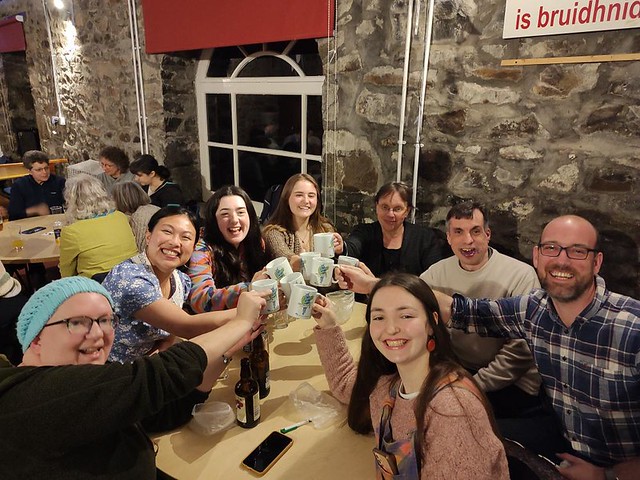Podcast: Play in new window | Download
In this adventure we investigate the origins of the word twilight.
Twilight [ˈtwaɪˌlaɪt] means:
- The soft light in the sky seen before the rising and (especially) after the setting of the sun, occasioned by the illumination of the earth’s atmosphere by the direct rays of the sun and their reflection on the earth.
- The time when this light is visible; the period between daylight and darkness
It comes from Middle English twilight (twilight), from twi- (double, half) and li(g)ht (light), which ultimately come from PIE *dwi- (two, double), and *lewk- (light). So twilight means ‘second/half light’ [source].
There are three different kinds of twilight: astronomical twilight, civil twilight and nautical twilight [source]. The difference between them involves how far the sun is below the horizon [source]
Twilight is also known as the blue hour, a calque of the French term heure bleue as the sky become a deep blue during twilight. [source].
In French it is also known as entre chien et loup (“between dog and wolf”) – a calque of the Latin inter canem et lupum, which means the same thing – because at twilight the difference between a dog and a wolf is not clear. [source].
Another word for twilight, used in northern England and Scotland, is gloaming, from Old English glōm (gloom, twilight, darkness) [source].
The prefix twi- appears in other English words, although few are currently used. They include: twifaced (having two faces, deceitful), twithought (a vague, uncertain or indistinct thought, doubt), twi-tongued (having two tongues, deceitful), and twi-minded (double-minded, uncertain, doubtful) [source].
I also write about words, etymology and other language-related topics on the Omniglot Blog, and I explore etymological connections between Celtic languages on the Celtiadur.
You can also listen to this podcast on: Apple Podcasts, Amazon Music, Stitcher, TuneIn, Podchaser, PlayerFM or podtail.
If you would like to support this podcast, you can make a donation via PayPal or Patreon, or contribute to Omniglot in other ways.
Radio Omniglot podcasts are brought to you in association with Blubrry Podcast Hosting, a great place to host your podcasts. Get your first month free with the promo code omniglot.












